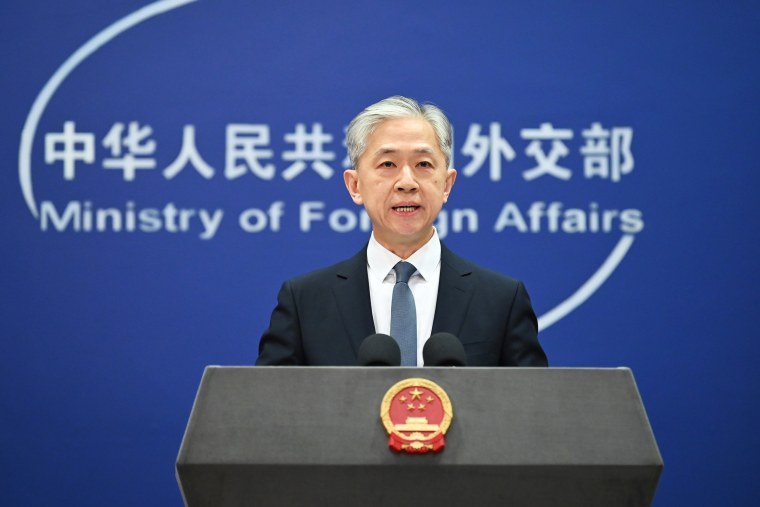In similar comments, Chinese Commerce Ministry spokesperson He Yadong told reporters that the U.S. should “genuinely respect the principles of market economy and fair competition” and “cease unjust suppression of foreign enterprises.”
He added that China would take all necessary measures to safeguard its interests.
Prior to the vote, Beijing warned that a ban would “ultimately backfire on the United States itself.”
The House voted to pass the legislation Wednesday with 325 votes in favor and 65 against, with one member voting present. It now goes to the Senate, where it is likely to face more scrutiny.
President Joe Biden, whose re-election campaign joined TikTok last month, has said he will sign the bill if it passes both houses of Congress.
TikTok has mounted an energetic campaign against the legislation, which it said was “jammed through” the House. The company has warned about the bill’s potential economic impact on small business owners who depend on the app and has urged its 170 million U.S. users to speak out against it.
On Wednesday, TikTok CEO Shou Zi Chew said the ban would endanger hundreds of thousands of American jobs, giving “more power to a handful of social media companies.”
“Make your voices heard,” he said in a video posted on TikTok and X.
In congressional testimony last year, Chew said ByteDance was “not an agent of China” and that TikTok “has never shared, or received a request to share, U.S. user data with the Chinese government.”
He said information on TikTok’s American users had been moved to U.S. servers run by Texas-based company Oracle and that under the new structure, “there is no way for the Chinese government to access it or compel access to it.”

House lawmakers who voted for the legislation on Wednesday nonetheless expressed concerns about China potentially accessing information about Americans through TikTok or spreading content on the app to influence their views, particularly during this year’s elections.
The bill creates a process for the U.S. president to deem a social media app under the control of a foreign adversary as a threat to national security and ban it from U.S. app stores unless the app severs ties with that country within six months.
Some House lawmakers who voted against the legislation cited free speech concerns, arguing that the U.S. should not follow China in selectively blocking social media platforms.
Wang, the Chinese Foreign Ministry spokesperson, said Thursday that the U.S. handling of TikTok was “completely different” from policy in China, where social media is heavily censored and Google, Facebook, Instagram, YouTube, X and other platforms are inaccessible.
“We have always welcomed various foreign platforms and services to enter the Chinese market on the condition that they comply with Chinese laws and regulations,” he said.
The TikTok issue is likely to resonate in the coming presidential election, with an NBC News poll in January showing Biden struggling disproportionately with young TikTok users.
Former President Donald Trump, who secured the Republican nomination this week, expressed opposition to the ban in recent days after initially supporting it.
The U.S. legislation has also raised questions as to whether other countries will follow suit. On Thursday, Australian Prime Minister Anthony Albanese said that while TikTok is not allowed on government phones, there are no plans to ban its use by the public.
“You’ve always got to have national security concerns front and center,” he said in a radio interview. “But you also need to acknowledge that for a whole lot of people, this provides a way of them communicating.”
Mithil Aggarwal reported from Hong Kong, and Rae Wang reported from Beijing.
